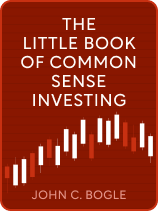

This article is an excerpt from the Shortform book guide to "The Little Book of Common Sense Investing" by John C. Bogle. Shortform has the world's best summaries and analyses of books you should be reading.
Like this article? Sign up for a free trial here.
Why invest in index funds over mutual funds? Could mutual funds beat the market in the long run?
Only a tiny fraction of actively managed mutual funds will outperform index funds in the long run. This is because financial assets tend to converge to the average price over time—a statistical tendency called “reversion to the mean.”
Here’s what reversion to the mean means for mutual fund investors.
Why Mutual Funds Will Never Outperform Index Funds
Why invest in index funds? According to Jack Bogle, the author of The Little Common Sense Book of Investing, few mutual funds outperform index funds over time because of reversion to the mean. Because of reversion to the mean, mutual funds that initially outperform index funds are likely to see returns drop below index funds’ returns in the long run.
(Shortform note: Because index funds closely match market-average returns, as Bogle notes, they don’t suffer from reversion to the mean relative to the entire market. Rather, their returns remain nearly identical to market averages.)
For example, imagine that you flip a coin five times and it lands on heads four times—80% of the time. While this result is unsurprising in the short term, if you kept flipping the coin—say, 100 times—you’d expect the frequency to level out to about 50%.
Similarly, while a sizable percentage of mutual funds can beat index funds in the short term, few mutual funds can sustain this performance for the long term. Just like you shouldn’t expect a coin to keep landing on heads 80% of the time, the Monte Carlo simulation shows that you shouldn’t expect mutual funds to keep outperforming index funds in the long run.
| Why We Fail to Grasp Reversion to the Mean In Thinking, Fast and Slow, Daniel Kahneman illuminates one reason why many investors overlook reversion to the mean—to the detriment of their returns. He argues that our minds are predisposed to seek patterns, even amidst total randomness. For example, individuals playing roulette might commit the gambler’s fallacy, concluding that the ball is more likely to land on red after landing on black several times in a row. Although the distribution of reds versus blacks isn’t actually governed by any pattern, we attempt to find patterns nonetheless. In a similar vein, when we witness a case of reversion to the mean—for instance, when a mutual fund thrives during one quarter and flounders during the next—Kahneman claims that we’re inclined to look for causal explanations of this variance. In fact, however, this variance is often the product of statistical randomness. Consequently, any attempts to explain particular instances of reversion to the mean will be unsuccessful. With respect to investing, this pattern-seeking tendency explains why many investors select mutual funds on the basis of past performance. However, research indicates that mutual funds’ past performance is a poor indicator of future success; rather, mutual funds that outperform one year are likely to revert to the mean in the long term. So, failure to grasp reversion to the mean actually harms our investment strategies. |

———End of Preview———
Like what you just read? Read the rest of the world's best book summary and analysis of John C. Bogle's "The Little Book of Common Sense Investing" at Shortform.
Here's what you'll find in our full The Little Book of Common Sense Investing summary:
- A simple winning strategy for novice investors
- Why index funds are superior to mutual funds
- Why bonds belong in your investment portfolio






